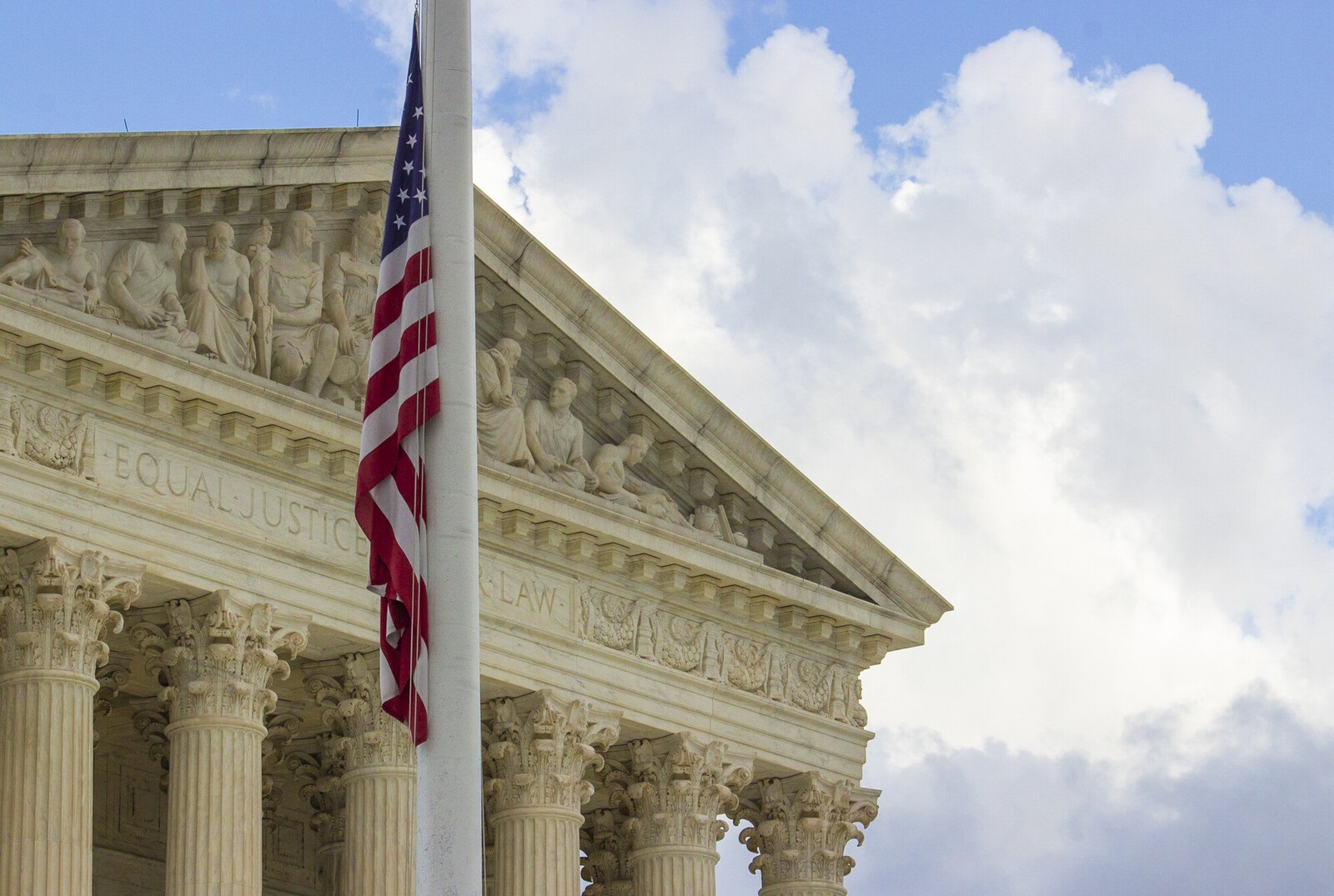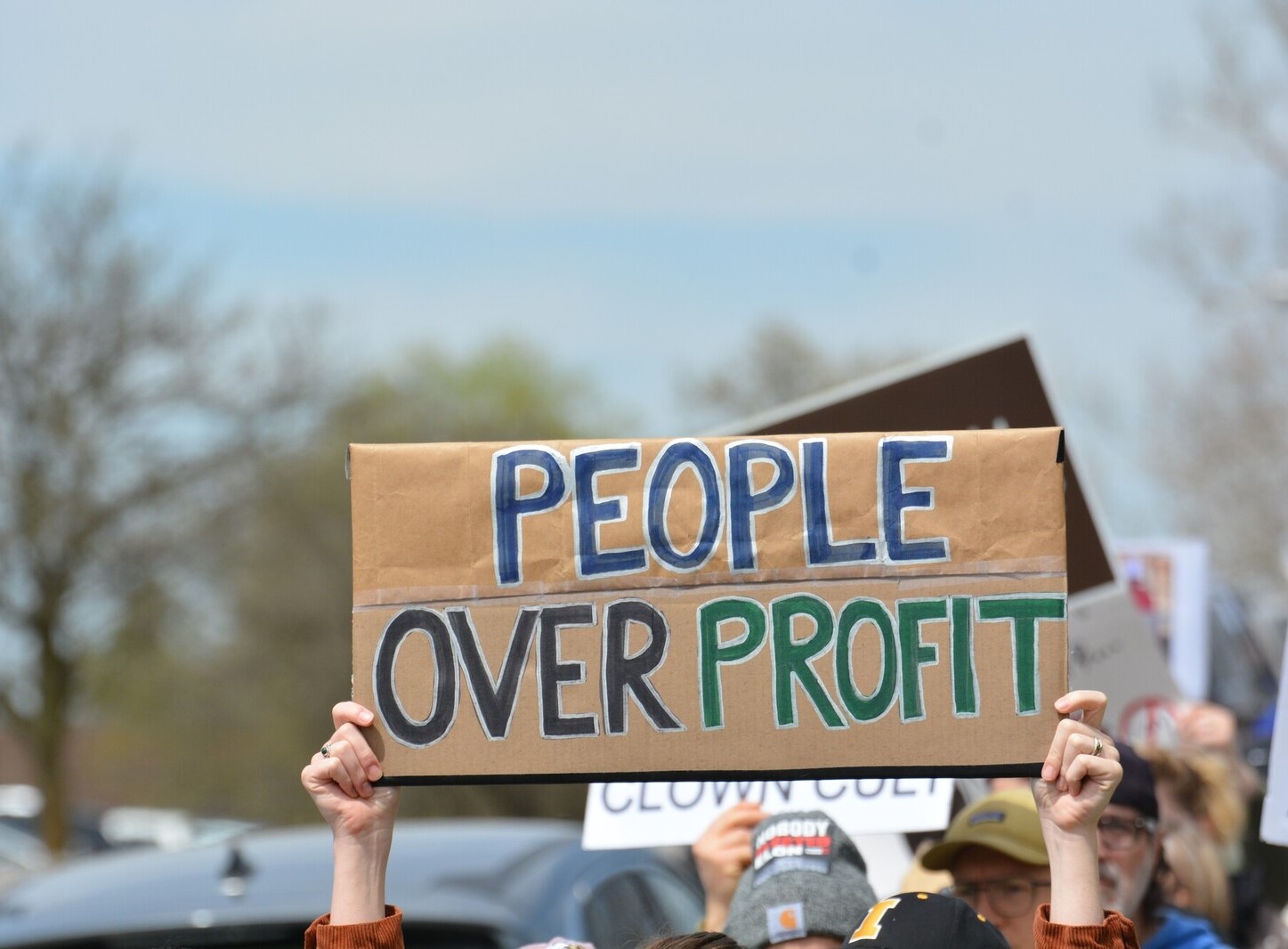
Every dollar that the government spends represents a choice: should we fund programs that help people meet their basic needs, or should we fund programs that destroy lives and livelihoods?
For most people, this choice is an obvious one. We should invest more in life-sustaining programs that benefit everyone. Unfortunately, many in Congress don’t seem to agree.
Economic inequality and military spending are at historic highs. Nevertheless, the U.S. House of Representatives has passed a budget reconciliation proposal that would take money away from low-income people and working families and redistribute it to wealthy oligarchs and weapons companies.
This unconscionable bill would fund tax breaks for the rich, military weaponry, and detention centers. We must demand that Congress reject this proposal, along with any other bill that places greed, exclusion, and militarism above our rights to healthy food, clean water, health care, education, affordable housing, and good jobs for all.
Here’s what you need to know about the reconciliation bill:
Helping those who need it least
In 2017, the wealthy benefited from a major round of tax cuts while the rest of the country was left with only scraps. The Tax Cuts and Jobs Act (TCJA) included a variety of corporate and individual tax cuts, both of which benefited those at the top of our economy.
Nearly every cent of the permanent corporate tax cuts went into the pockets of business owners, corporate executives, and high-paid workers. Most other parts of the bill, including the individual tax cuts for the rich, are now set to expire at the end of this year. Rather than letting these unnecessary cuts expire, Congress has made it its top priority to provide even more money to those who need it the least.
Where will the money for these new benefits for the wealthy come from? Congress plans to make enormous cuts to Medicaid, SNAP, and other critical programs that are relied upon by people all over the country. One estimate suggests that this bill will take $1,000 a year away from the poorest people in the U.S. while giving a shocking $390,000 to the richest 0.1%.
The single largest source of money being redistributed to the wealthy is Medicaid, which provides health care to more than one in five Americans. Congress' current proposal represents the largest Medicaid cut in history, stealing health care away from millions of low-income people. While members of Congress may try to disguise these cuts with misguided and ineffective gimmicks like their so-called “work requirements,” people in the U.S. will know who to blame when visiting the doctor suddenly becomes an impossibility for large swaths of the population.
Medicaid is not the only program at risk. Deep cuts to SNAP “food stamps” and other food aid programs will cause millions more people to go hungry, especially since these benefits are already tiny. Cuts to clean energy investments will destroy good-paying jobs, raise household energy bills, and force everyone to deal with the long-term costs of pollution and climate change. New restrictions on the Child Tax Credit could cut off support for 4.5 million children, while changes to student loan programs would drastically reduce aid for students trying to afford college. Meanwhile, the plans to eliminate the IRS’ free tax filing program will make filing your taxes more expensive and time-consuming.
All the money spent on these working-class priorities will instead be handed over to the people who need it the least. For every $1 of benefit that the average person received from the individual tax cuts Congress is trying to extend, those in the top 0.1% received more than $277. These Robin-Hood-in-reverse plans would take from the poor to help the rich, abandoning workers and those in need.
Funding more waste at the Pentagon
The one area of government not facing cuts is the U.S. military budget, which is set to surpass $1 trillion this year. This is unsustainable and immoral. As the Rev. Dr. Martin Luther King Jr. reminded us, “A nation that continues year after year to spend more money on military defense than on programs of social uplift is approaching spiritual death.”
If Congress was serious about cutting waste, the Pentagon budget should be at the top of its list. For over two decades, military spending has grown while the Pentagon has repeatedly failed to pass basic audits. In 2023, the Pentagon couldn’t account for over 63% of its nearly $4 trillion in assets.
Poor oversight enriches corrupt weapons companies at the public’s expense, even allowing Boeing to overcharge the Air Force by more than 8,000% for soap dispensers. Many Pentagon programs become black holes for taxpayer funds, wasting trillions of dollars on deeply flawed hardware that does nothing to provide for global peace and security. These failures by the Defense Department do nothing to keep us safe. Giving them even more money to waste will not fix the problem.
Cutting the Pentagon budget does not need to come at the expense of security. In a 2019 letter opposing cuts to foreign assistance, a group of 141 retired three- and four-star generals and admirals noted that “for every $1 spent on conflict prevention, we save $16 in response costs and avoid sending our troops into harm’s way.” Despite this, Congress and the Trump administration are defunding diplomacy and peacebuilding, leaving us all less safe. While AFSC does not always agree with how U.S foreign aid is used, this assistance undoubtedly helps to save lives around the world. U.S. foreign aid plays a vital role in protecting global health, alleviating poverty, and preventing conflict. Humanitarian aid programs have saved millions of lives, as well as providing a basic level of stability in some of the world’s worst crisis zones.
Increasing Pentagon spending while slashing humanitarian aid is entirely counterproductive. Without foreign assistance and diplomatic engagement, expensive military solutions become the only tool left for addressing foreign policy challenges. The instability caused by ignoring humanitarian needs around the world generates problems that cannot be solved with guns and bombs. If cuts are needed, take them from the military and instead invest in cost-effective peacebuilding efforts and programs that meet people’s needs both domestically and internationally.
Rather than increasing Pentagon funding, Congress should take seriously Trump’s February call for negotiations with Russia and China towards denuclearization and deep cuts to global military spending. Even shifting just $100 billion from the military budget towards meeting human needs could create hundreds of thousands of green jobs, reduce homelessness, alleviate hunger, and expand access to education– all causes which do more to provide for our national security than guns and bombs.
Promoting cruelty against immigrants
The reconciliation bill is no less concerning on the topic of migration, slashing support programs while supercharging immigration deportations and enriching private prisons with records of horrific abuse. The proposal would give the Trump administration hundreds of billions more of our taxpayer dollars to continue militarizing our communities while using immigrants as scapegoats to further its xenophobic agenda.
The administration has already spent exorbitant amounts of money to transfer and jail immigrants without any regard to their rights under the law. Military deportation flights are incredibly costly to taxpayers, sometimes even as much as $3 million per flight. The administration wasted $16 million on moving migrants to Guantanamo Bay detention center, cutting them off from communication with their loved ones or lawyers, only to transfer them right back to detention centers in Louisiana months later. Meanwhile, the deployment of U.S. troops to the southern border cost more than $6 million every single day.
Widespread deportations will leave children without caregivers and exacerbate fear in communities afraid to send their children to school. The American Psychological Association warned that our cruel immigration practices can cause children to “suffer severe psychological distress, resulting in anxiety, loss of appetite, sleep disturbances, withdrawal, aggressive behavior and decline in educational achievement” when separated from their parents. Similarly, a Harvard University investigation found that children in detention were subject to significant “mental and physical harm relating to inadequate and inappropriate medical care…”
Congress’ reconciliation bill would dramatically worsen the cruelty of mass deportation. It would serve as a blank check for Immigration and Customs Enforcement (ICE) to meet arbitrary quotas; target individuals in churches, schools, and courthouses; and conduct home raids that deport entire families. In fact, the Trump administration has expanded the definition of who is deportable by stripping protections from people with Temporary Protected Status (TPS), including at least 300,000 Venezuelans and 500,000 Haitians. The reconciliation bill could also create a 10 year, multi-billion dollar slush fund for the border wall– a project marked by corruption, fraud, ineffectiveness, and inhumanity.
Contrary to popular belief, these policies will also harm U.S. citizens and legal immigrants. The expansion of ICE’s expedited removal authority deprives those targeted by government authorities of due process protections. A government report from 2021 identified as many as 70 cases of U.S. citizens being deported from their own country, and even more citizens have been deported this year. Expansive deportation programs also lead to more racial profiling, subjecting millions of Americans to state-enforced discrimination.
The xenophobic plans of Congress and the Trump administration attempt to divide people instead of recognizing the human dignity of immigrants and their contributions to our society. At a time when life-saving social programs are being cut, funneling more money into this hateful agenda is unconscionable.
Our government should be working to help everyone, not just billionaires. Shoveling money into our war machine does not make us safer, especially while we ignore the problems that produce wars in the first place. Immigrants should not be scapegoated, but treated with dignity as vital members of our communities.
Congress’ reconciliation bill denies these simple facts, rejecting compassion, solidarity, and justice. As a Quaker organization, we believe in a world where every human life is recognized as equally valuable. To do this would require doing the exact opposite of what this bill does: bringing about widespread, sustainable prosperity and an end to poverty, paid for by having the wealthy pay their fair share and redirecting resources away from violence and authoritarianism.
The first step toward building this brighter future is coming together and using our voices to demand that Congress reject this reconciliation bill. Instead, our elected officials should listen to their constituents and their demands for a more just and peaceful world.



